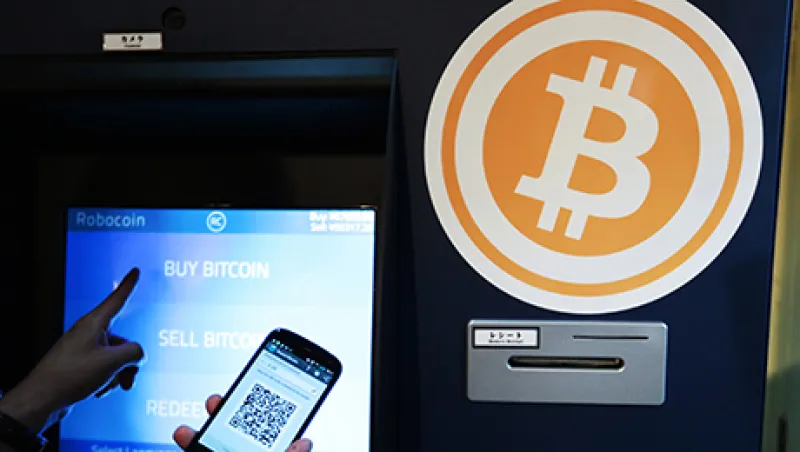“By now I think we can agree that the absence of an official, rules-based, cooperatively managed monetary system has not been a great success. In fact, international financial crises seem at least as frequent and more destructive in impeding economic stability and growth.”
— Paul Volcker, Bretton Woods Committee, May 2014
This quotation, from the man many economists and analysts consider the best central banker of our time, brings up an interesting point: We would not be thinking about Bitcoin in the first place if our current monetary arrangements were on a sustainable trajectory. The question of whether or not there is a better way to streamline both domestic and cross-border payments is gaining at least legitimacy, if not currency. With this in mind, it’s worth investigating what Bitcoin has to offer.
The first thing to understand about Bitcoin is that it is not just an improvement on existing payments and monetary systems. It’s a brand-new invention. Analysts and skeptics alike get tripped up in trying to apply conventional analytical thinking to this completely new technology: “It’s a currency and should succeed or fail because of X; it’s a commodity and should be priced like Y; it’s a technology and should be adopted like Z.” In actuality, it’s all these things — and more. It also works as an asset registry and can be likened to a seat on an exchange. It’s a software protocol — just think how much HTTP would be worth. And it’s a global payments network, comparable to a company like Western Union. Because Bitcoin is a new concept that transcends several long-standing boundaries, it requires us to devise some new ways of thinking about it.
Another important characteristic of Bitcoin is that it is decentralized. Bitcoin is a collaboration of tens of thousands of individual computers acting in unison — a beehive of computing from the bottom up, with no need for a central administrator. For starters, this means that there is no bank at the top of the hierarchy: everyone is the bank. Similarly, since Bitcoin’s value accrues from the users themselves as they agree to transact on a free market, there is no need for an issuing monetary authority. If other decentralized systems are any guide, the currency may be difficult to regulate. Movie sharing, for example, now makes up 25 percent of all Internet traffic.
The next thing to consider is that, unlike traditional payments systems, Bitcoin is — like the Internet itself — an open network. This makes it a level playing field for new development and allows what Vint Cerf, recognized as one of the fathers of the Internet, has called “innovation without permission.” Launching a new web site doesn’t require securing anyone’s permission. Similarly, when a Bitcoin developer wants to embed a new payments capability inside a device or an application or a web site, no one needs to give a formal okay.
We’ve grown accustomed to money being inextricably linked to our personal identity. We hand our credit card, with our name and secret number on the front, to a valet parking attendant and cross our fingers that he won’t swipe it for his own purposes. Credit card fraud costs U.S. merchants more than $190 billion annually — a figure that stands to rise. By contrast, a Bitcoin purchase is a one-time, one-way, push transaction for an exact amount, with no requirement to offer up personal credentials. Such anonymity also reduces the threat posed by identity theft, since the Bitcoin user’s online credentials are not exposed to hacking.
The word “credit” comes from the Latin credo, “I believe.” With the exception of cash, our money systems rely on financial institutions’ believing that a potential customer is creditworthy. The majority of the world’s population, however, (including an estimated 12 percent of New York City residents) cannot meet any institutions’ standards. As a self-contained unit of credit, rather than one extended by a third party that must be repaid, Bitcoin is particularly useful in global commerce where credit-based banking has not or cannot penetrate. One electronics retailer in Australia, for example, is doing brisk business to countries like Mozambique and Pakistan, because they know they get payment value transferred instantly, with no fear of fraud or charge-backs.
As a digital entity, Bitcoin is as easy and fast to send and receive as an e-mail, and the money itself can be programmed, which translates into several possibilities for account monitoring and safekeeping. A sum can be divided among multiple owners — such as an investment management firm, its client and the client’s accounting firm, with approval by two of the three required for any asset movements. This allows for a greater level of account supervision as well as instant asset recovery. Some observers may go so far as to say it is more secure than single ownership that relies on trusting just one counterparty.
The line between money and technology will likely keep blurring as value transfer becomes an embedded computer function rather than a remnant of antiquated processes designed to shift paper and gold bars. Nonsovereign money is likely to grow — many corporations have much cleaner balance sheets than sovereigns anyway. We may also see more affinity money issued by groups and for charitable causes. So-called smart property seems poised to expand as well, where the Bitcoin ledger is used not as a currency but as an asset registry. Paying hotel bills with a share of Google, for example, is already possible via this arrangement.
Money was invented by people and emerged from the free market. Only in the past century has it been taken over by governments wielding monopolistic legal tender laws. Those national monopolies have provided stability and uniformity at the cost of healthy competition and innovation. We’re left searching for the cleanest dirty shirt, waiting for days anytime money crosses borders and unable to transact with half of the globe’s citizens. Though many details are still being worked out on security, user experience and consumer protection, Bitcoin should be given the space and the support to push the boundaries of convention and make the use of money more sustainable.
We can close with another thought from Volcker’s recent address: “That is all a long introduction to a plea — a plea for attention to the need for developing an international monetary and financial system worthy of our time,” he said. And since our time is increasingly defined by technology, perhaps that’s the first place we should be looking.
Mark Pey is a principal of Sydney-based Tilikum Investments, an investment company specializing in digital currency sector investments.
Get more on trading and technology.






